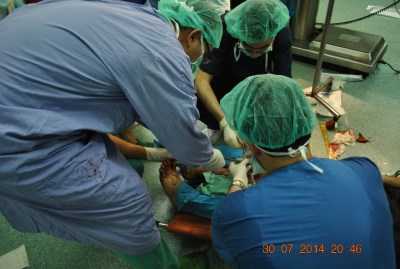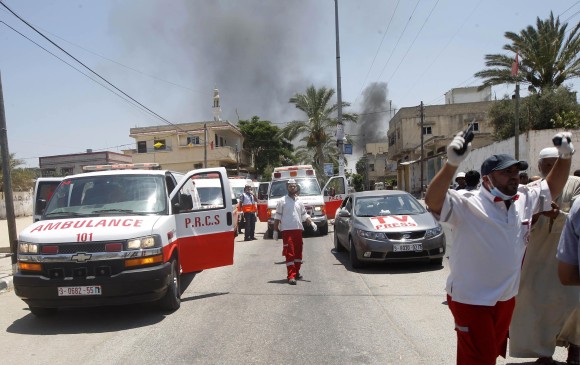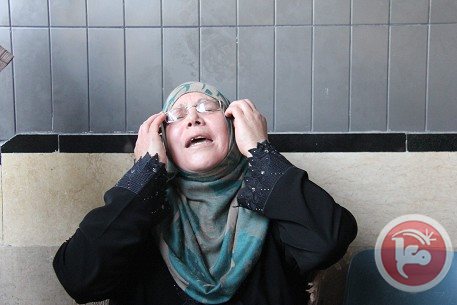Category: Gaza
-
Gaza Ministry of Health: “Gaza surgery being performed in corridors, on the floor
31st July 2014 | Gaza Ministry of Health | Gaza, Occupied Palestine Gaza hospitals are operating under impossible conditions, with surgery now being performed in corridors and on the floor due to the sheer numbers of wounded from massacres such as Shati park, UNRWA school and Shujeiyah market. Lack of theatre space sees two persons being operated…
-
An eyewitness to genocide: a night in Khuza’a
31st July 2014 | Sarah Algherbawi | Gaza, Occupied Palestine Khuza’a is a 4000 acres town that lies east of Khan Younis city in the southern area of Gaza, with a population of almost 11,000 people. On Monday night, July the 21st, Israeli forces started to bomb Khuza’a heavily, with the aim of destroying it. Before…
-
Gaza Ministry of Health: “Israeli attack on crowded market during ceasefire is ‘barbarity personified’”
30th July 2014 | Gaza Ministry of Health | Gaza, Occupied Palestine Ministry of Health Gaza is outraged at the Israeli massacre perpetrated during the so-called humanitarian ceasefire, when F-16s fired missiles into the crowded Shujeiyah market as hundreds took advantage of the lull to buy food and supplies. At least 17 people have been killed…



